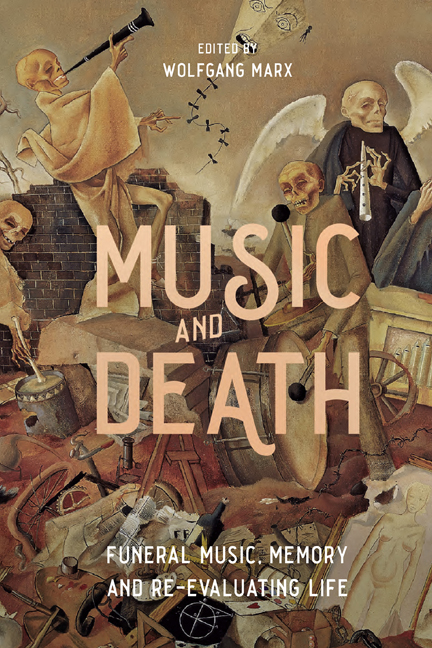8 - Death in Music and Music in Death: Reflections on Mortality and Listening in the Performances of Marino Formenti
Published online by Cambridge University Press: 12 January 2024
Summary
We often turn to music for comfort and consolation when confronted with death. Music invariably plays a role in commemorative ceremonies, and questions of mortal existence are articulated with varying levels of profundity in virtually all musical traditions and genres throughout history, from the requiem tradition to ‘oppari’ laments of southern India to popular songs such as Eric Clapton's ‘Tears in Heaven’. The music, the way it is composed or performed, and how the performance is staged often provides solace at times of crisis. But there remain many questions as to why music has this effect. Psychological studies of music and death often begin with the listener and empirical investigations of the healing effects of music. In this chapter, we will instead start with music and performance as a creative response to thoughts on mortality, before identifying links between creative processes and the role music plays in mitigating negative responses when we are confronted with death. The themes presented will suggest new ways of understanding why we turn to certain kinds of musical expressions when faced with thoughts on death, and what relief this music may offer when coping with grief.
A close look at the striking musical poetics of pianist Marino Formenti will initiate a discussion of the connections between thoughts on mortality and creative practices. Analyses of Formenti's performances and interpretations add further layers of meaning to the empirical findings. The expressive qualities and characteristics in the music will be seen in light of psychological stress theory, highlighting the links between creative practices related to reflections on death and how we cope with stressful experiences and anxiety. Formenti's performances give rich incentive to address these issues and more specifically the following themes: the predictability of a listening context and the music – closely related to the role of repetition and temporal expansiveness; the individual's perceived control over a listening situation; and the role of music in encouraging social togetherness and belonging in order to cope with negative feelings associated with mortality.
- Type
- Chapter
- Information
- Music and DeathFuneral Music, Memory and Re-Evaluating Life, pp. 155 - 169Publisher: Boydell & BrewerPrint publication year: 2023



